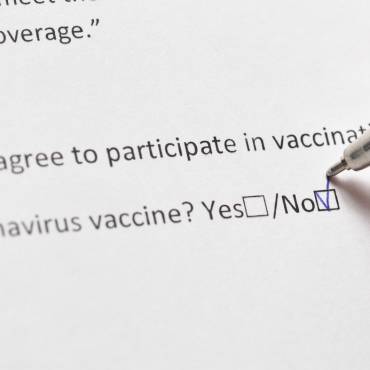An interim synthesis of the evidence for febrile seizure risk following MMRV (ProQuad, Merck) vaccination indicates there is a causal relationship between receipt of the first dose of the vaccine and an increased risk for febrile seizures 5–12 days following vaccination, when compared with separate dosing for the measles, mumps, and rubella (MMR) vaccine, and the varicella (V) vaccine provided at the same visit, Dr. Karen Broder of the CDC Immunization Safety Office told ACIP at its fall meeting.
Speaking on behalf of the working group, Dr. Broder said that during the 5- to 12-day postvaccination period, one additional febrile seizure may be expected to occur per approximately 1,900–2,600 children vaccinated.
However, because the evidence is insufficient to conclude whether the risk is increased during days 13–30 following vaccination, the evidence also is insufficient to conclude whether the overall risk is increased within 30 days of vaccination, she said.
The findings are based on the results of two unpublished postlicensure studies of dose 1 ProQuad, including final results on febrile seizures from a Merck-sponsored study, and preliminary findings of a Vaccine and Safety Datalink Project.
The working group considered the biological plausibility of an increased risk with MMRV vaccination vs. MMR + V vaccination, as well as population-based risk.
Next, the group plans to evaluate the clinical importance of febrile seizures. It also proposed an epidemiological study in the Vaccine Safety Datalink population to assess confirmed febrile seizure risk after dose 1 MMRV vaccine in periods other than those already studied—such as in the entire 0- to 30-day postvaccine period.
Source: Pediatric News, volume 42, issue 12, page 2, December 2008.


